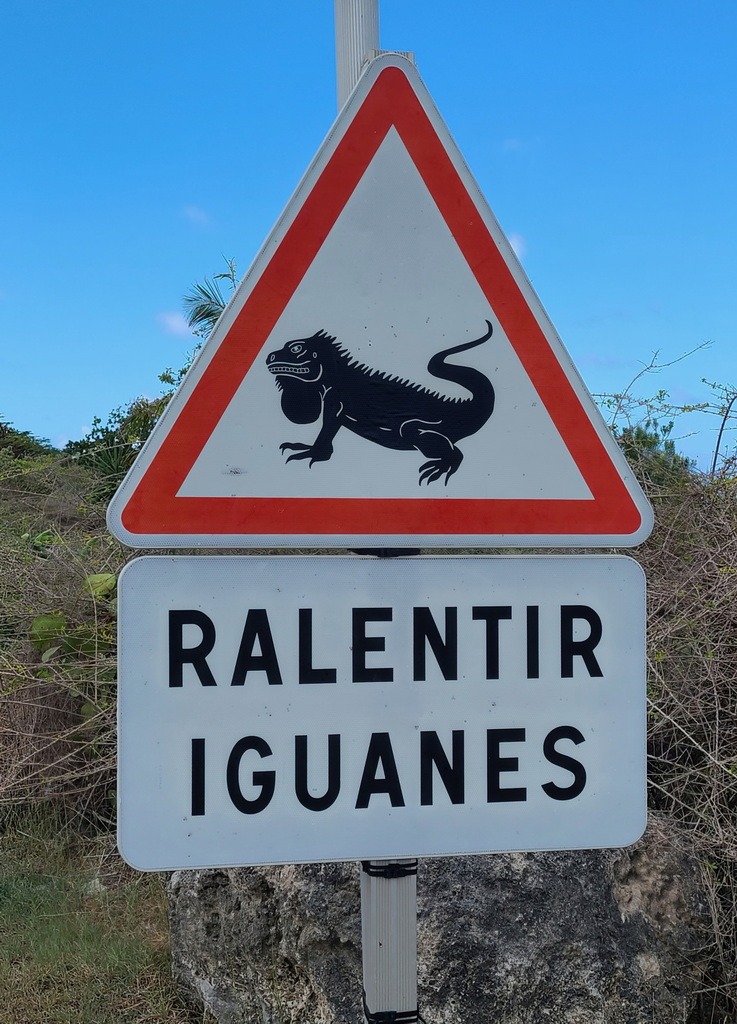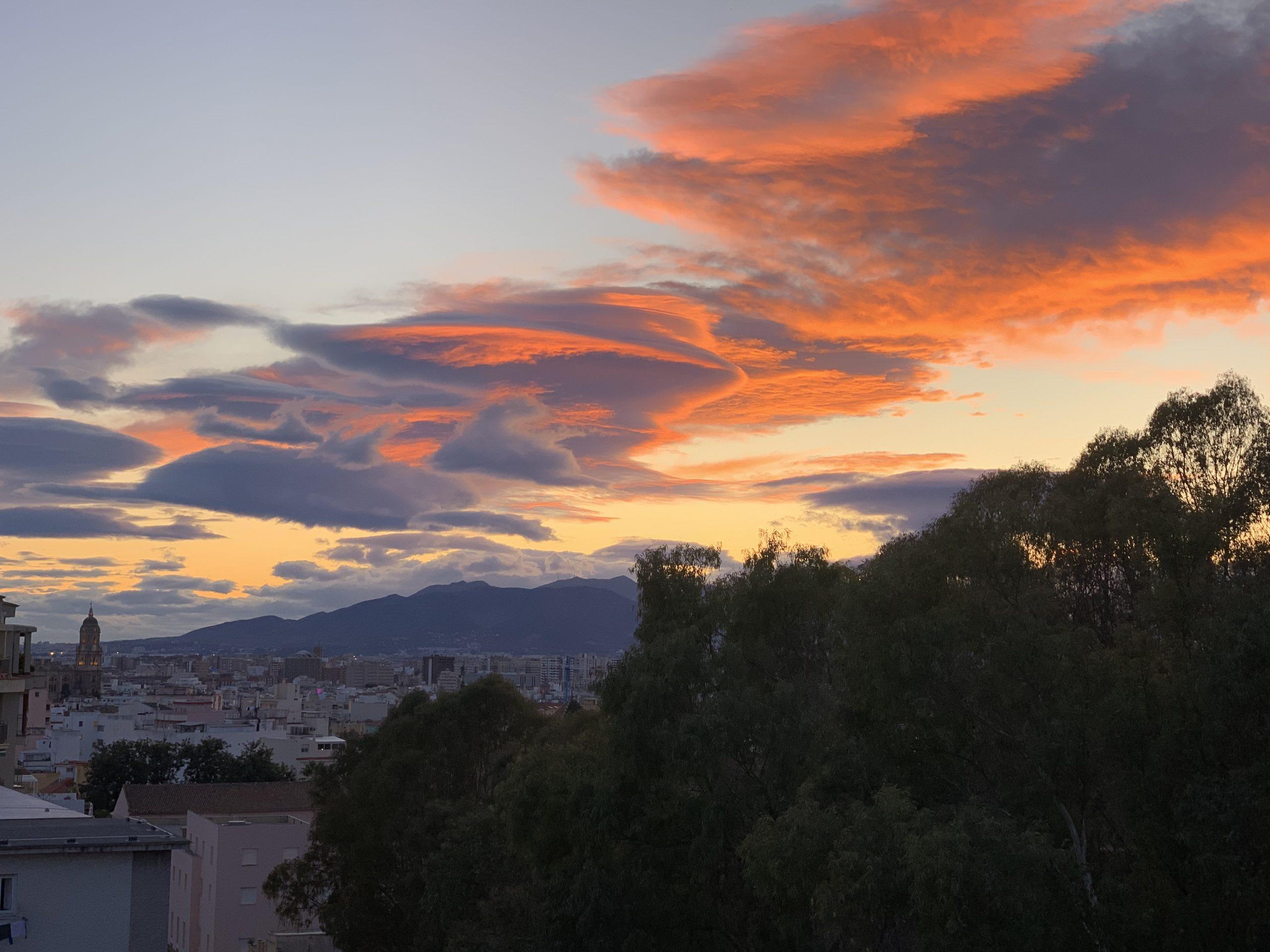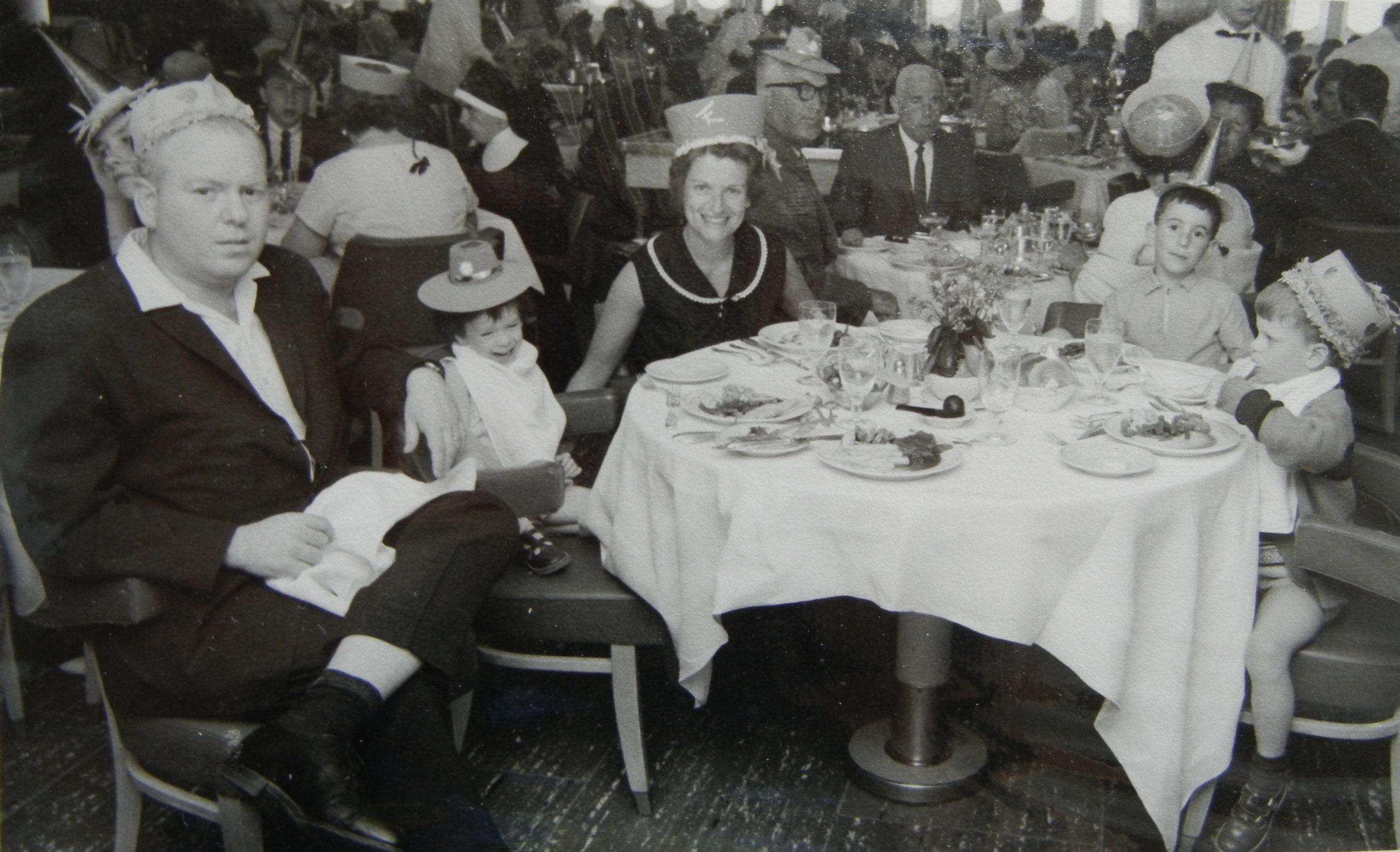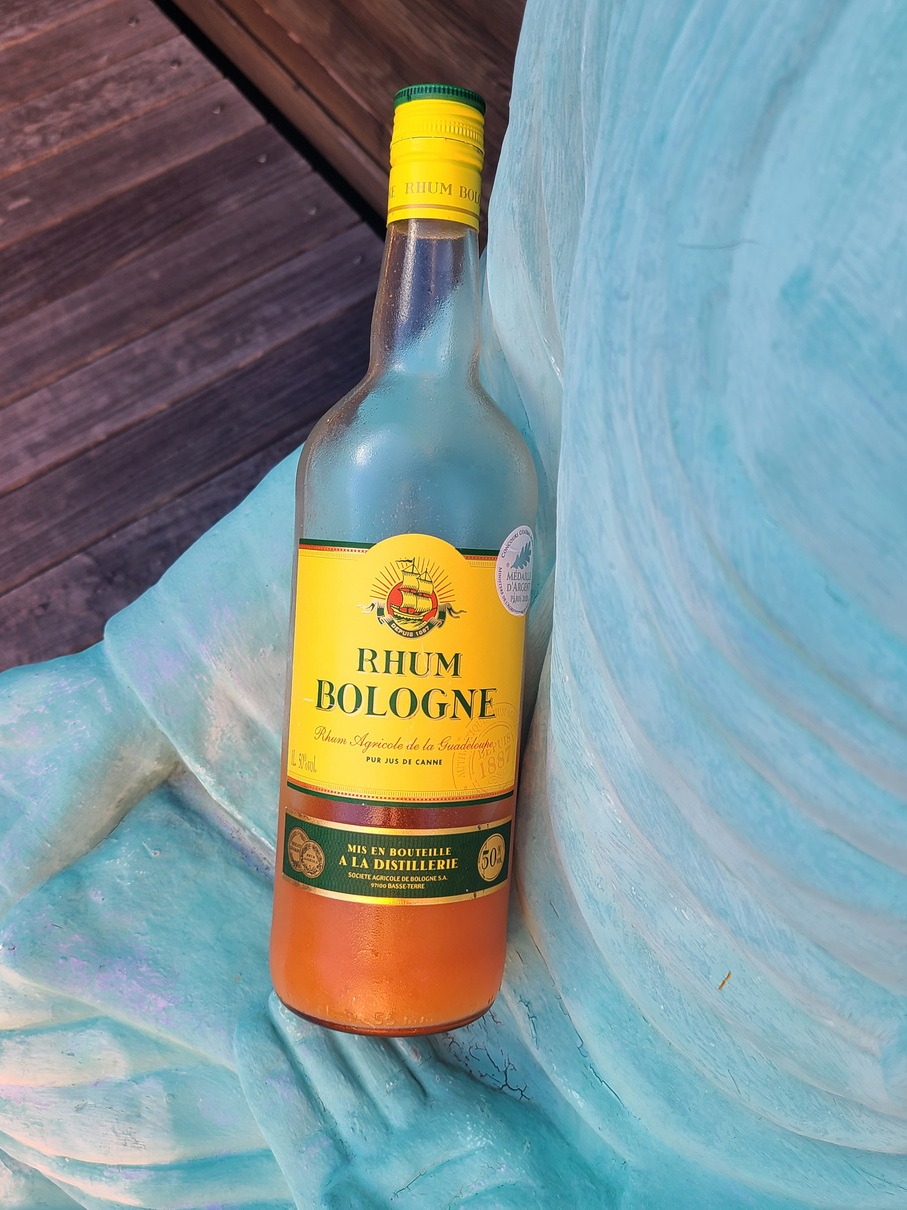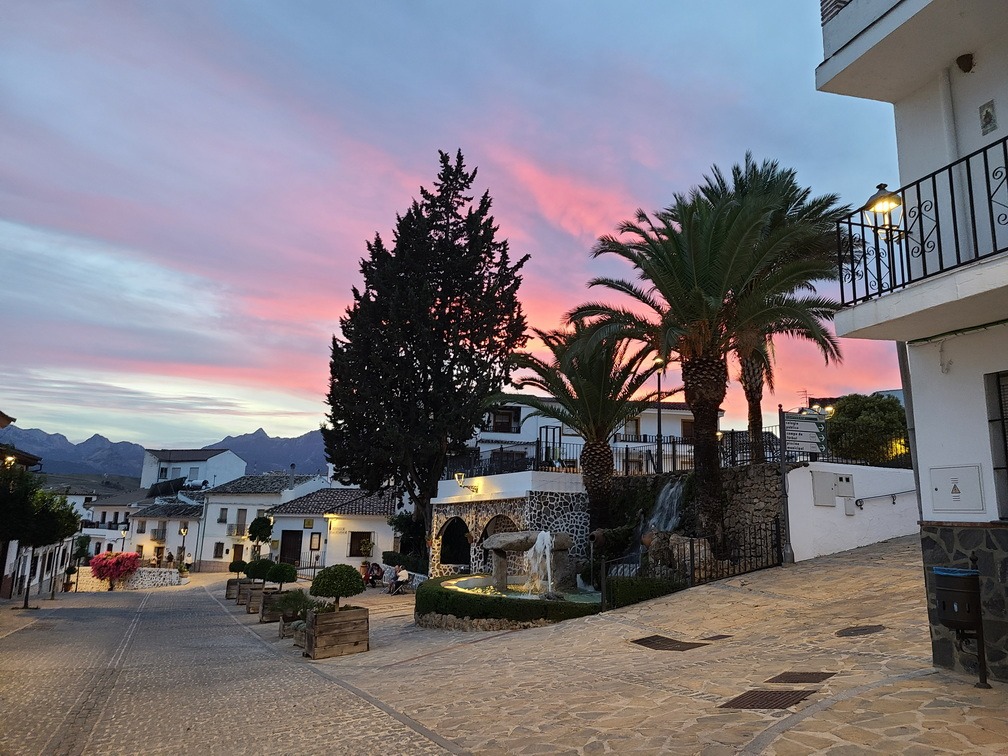
I’m sitting here in Guadeloupe at 8:00 a.m., by the pool, listening to the birds chirp and feeling the warm, gentle air on my skin. I cannot imagine a more peaceful place to be writing. Yet, we almost didn’t come.
When we were leaving Spain, the Omicron Covid variant was raging, the Guadeloupe newspaper headlines were showing pictures of anti-vaxxers at barricades and burned-out cars, flights were being cancelled. Our insurance company had warned us that, now that Covid was spiking again, it would no longer provide out-of-country insurance for it. And the Canadian government issued a travel advisory saying, basically, “Don’t do it.”
We contemplated bailing and going back to Canada. Then we thought about the cold and the snow and being trapped indoors for another couple of months. We figured this would be a better place to ride it out, and we continued our trip.
Reality versus Perception
The reality of what it is like here feels so completely at odds with the news. And, perhaps because we are not in our normal home, we are able to largely ignore the news. Every few days I’ll check to see what’s going on elsewhere, including in the “distant” capital of Pointe-à-Pitre. It is only 34 km away, but could be on a different planet for all the impact it seems to have here.
Although I had read about the low vaccination rate in Guadeloupe, high levels of vaccine-resistance, anti-mask sentiment, and so on, everybody we meet here seems super-friendly, especially the locals. Most people do wear masks in crowds, though often with the useless under-the-nose style. We’ve been vaccinated 3 times and stay outdoors and away from crowds, so I think our health risks are pretty low. The biggest risk we’ve taken so far is riding the ferry to a small nearby island the other day, but we were all outside, with strong breeze, and we sat by the railing. Other than that, there’s the supermarket, but mask compliance is strong in there, and we don’t stay long.
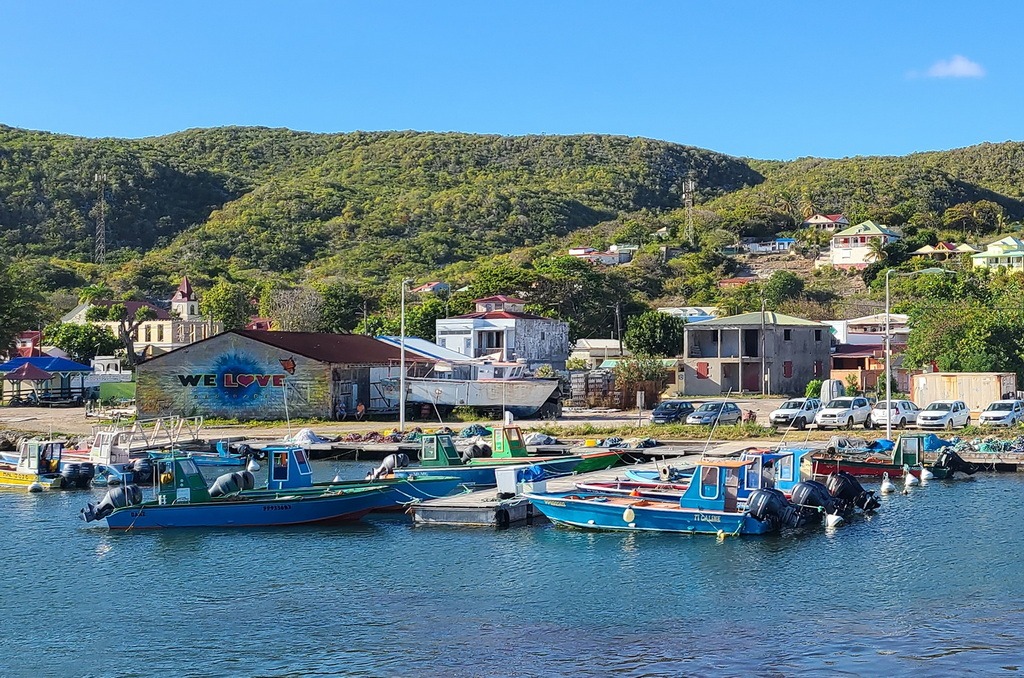
There was one day, probably one of those days when I’d looked at the news, when I had a moment of concern. It looked like riots were going on in the capital, blocking access to the airport. I wondered if this is how people get trapped in war zones.
DH was relaxed about it: this is part of France, and if it comes to it, the French government will intervene to stop the disruptions, he argued. At the moment, they’ve implemented a 6 p.m. curfew in the cities where the rioting is. There’s an 8 p.m. curfew in the rest of the island due to Covid, which is fine by us, as we aren’t really late-night party people anyway.
I’ve done more reading about it, and it seems that what is really going on in the capital is that two rival gangs have decided to leverage the moment to try to pressure corrupt local government officials to pay them to stop the disruptions. Eight people have been arrested for the riots in November and December, including one government employee, and there is a court process underway.
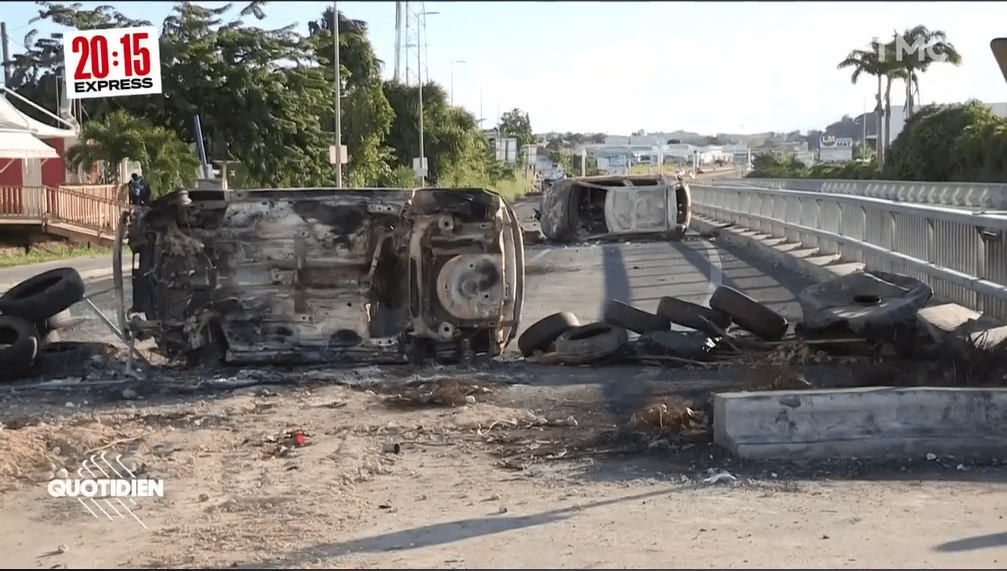
On the other hand, the protests are continuing. The news clip photo above is from yesterday, and apparently there are now a few roadblocks that have been set up in towns closer to here. The disruptions may have been started by gangs, but they are succeeding at stirring up latent discontent, just as Trump did in the United States. The unthinkable becomes thinkable; the unsayable becomes proclaimed.
The Past Haunts the Present
I can certainly understand, given the history of the French colonizers here, why Guadeloupeans would distrust the overseas government. I haven’t seen the statistics, but it appears that unskilled, manual labour is all done by the black population, whereas more highly skilled, better-paid work is dominated by the whites (many of them even recently arrived from mainland France).
Is that due to educational inequities? Historic only, or still an issue? Certainly, they are still overcoming a history of colonial enslavement. The French government also allowed a dangerous pesticide, chlordecone, which was known to be toxic as far back as the 1960s, to continue being used here on plantations until the 1990s. According to the French government’s health agency, some 90% of adult Guadeloupeans have high levels of chlordecone in their bodies, which leads to elevated rates of prostate, stomach and pancreatic cancers (https://www.santepubliquefrance.fr/les-actualites/2018/chlordecone-et-autres-pesticides-sante-publique-france-presente-aux-antilles-de-nouveaux-resultats).
So no wonder they don’t trust them on vaccines. I look at it and think, yes, but the white, mainland French citizens are also getting vaccinated. I can imagine, though, that people who have less education, have not travelled, and have been victims of past abuses, might disbelieve the claims that most of the mainlanders have been vaccinated, with positive effects.
There is apparently a common belief — not just here — that this whole vaccination thing is a plot by whites to kill off the black population of the world. Not a logical belief (especially given that, on the contrary, the developed world is at fault for NOT providing enough vaccines to countries with mostly black populations), but I can understand the fears that underlie it.
Glass Half-Full
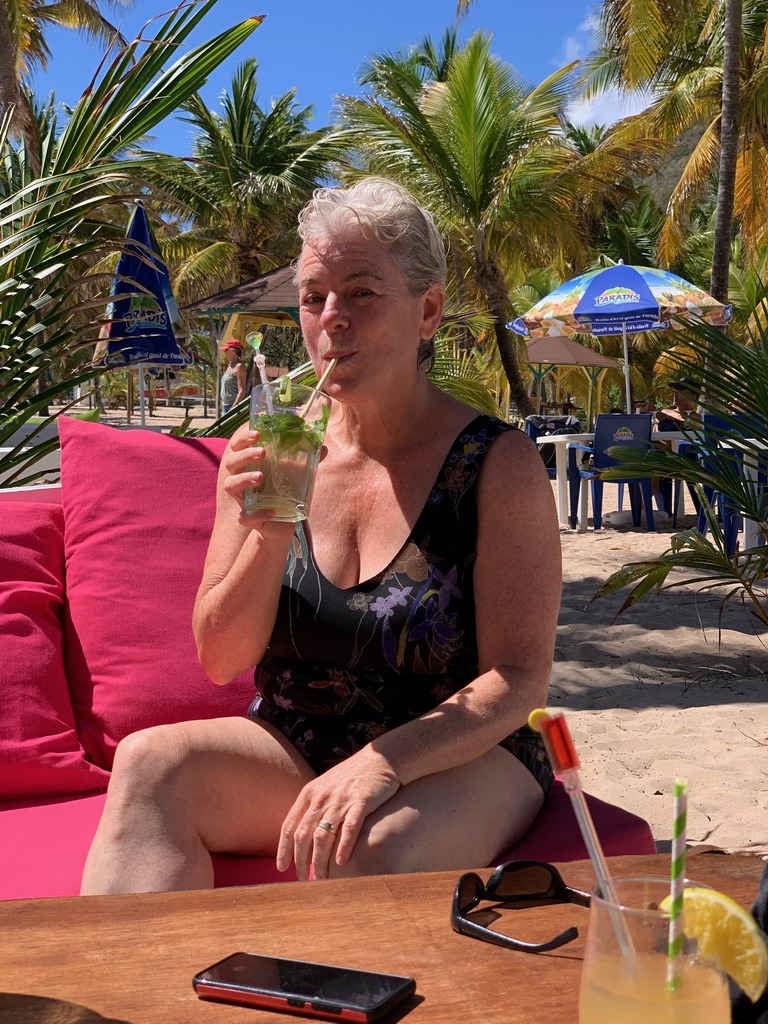
On the positive side, the “perturbations” are helping me with the novel I’m writing. I can now understand how people in peaceful parts of Russia could have had no idea about the revolution that was fomenting in the cities, for a while, anyway.
We were cycling along one of the main roads a few days ago and I spotted a guy handing out leaflets to the black folks driving by, but not the whites. Later, I saw people gathered around reading one of the leaflets. The journalist-manquée in me wanted to ride back and ask to see the leaflet, and ask them about their perspective on what’s going on. DH was eager to get the groceries, so I didn’t do it but it definitely brought me back into my story, and a scene I had written of my main character and one of his socialist friends handing out leaflets surreptitiously in pre-revolutionary Russia.
Over the next few months, Revekka and I were often out distributing pamphlets in the streets. We had to be careful, as it was illegal to have these anti-government materials, let alone distribute them. Revekka taught me what to look for and who to avoid. Don’t bother with the people with well-polished shoes, she said. Even off-duty police officers keep their shoes shined, and the rest of those who have well-shined shoes or boots are the rich bourgeoisie and not likely to be sympathetic to our cause. Make sure you are not being followed. If somebody seemed to be following us, we quickly hid our anti-government leaflets under our coats and replaced them with promotional fliers for a local florist shop. The owner was a friend of Viktor’s, and sympathetic to the cause. He was happy to help us, and even more so to get the free advertising.
Excerpt from Tema Frank’s work-in-progress
And now, back to writing my novel…
